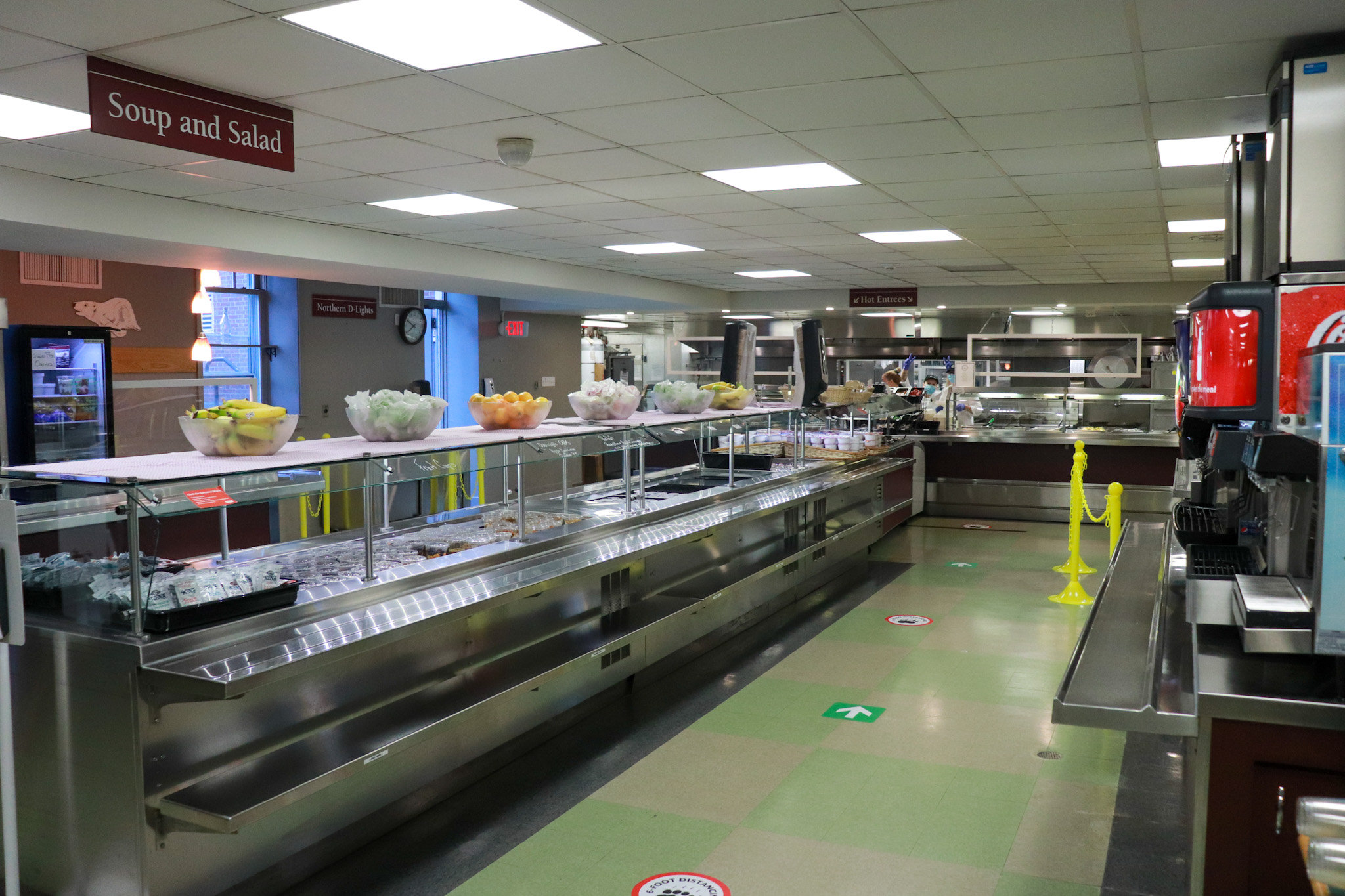College adapts to labor shortage, rising inflation rate
February 4, 2022

Cardone says casual employees fill vacancies due to student worker schedules. A large number of student positions remain open, according to Cardone, creating more vacancies for an already-diminished casual staff to fill. This comes after an increase in the student Dining wage this past fall from $13.00 to $14.25 per hour following initial staff shortages earlier this year.
Senior Vice President for Finance and Administration & Treasurer Matthew Orlando says the August increase was intended to stabilize the College’s staffing levels as the vacancy rate rose above the normal 4 percent in the wake of pandemic career changes. The effort has largely been a success.
“We are able to see a marked decrease [in the changes] of our vacancy rates,” Orlando said.
While these increases in staffing levels have been more gradual than anticipated, Cardone says the situation is improving. Orlando and Cardone agreed that the College’s wage is competitive.
“There’s just a lack of employees out there currently,” Cardone said. “And we are all in competition with each other.”
These shortages come amid unprecedented inflation. Cardone reports that Dining has seen a 15 percent increase in cost of proteins and an increase in general food costs by 7 percent.
“In comparison to [a year and a half ago], we were able to order a case of chicken [that] used to come in at $39 a case. That has more than doubled,” Cardone said.
The College’s construction plans have also not been immune to inflation. The plan for Mills Hall, which is currently under construction, had to be modified to reflect increases in material costs. Market conditions caused an increase of $2.32 million from the February 2020 building estimate, necessitating cost-saving adjustments.
“A lot [of the changes] were different materials … in the building’s envelope,” Orlando said.
Removed, too, were “a number” of skylights, Orlando wrote in an email to the Orient. These brought the construction costs to increase by only $1.5 million over the initial $35 million estimate.
The budget struggle occurs as other institutions also grapple with rising costs—Williams College recently announced a 3 percent increase in base pay to confront the effect of inflation on its faculty and staff. Orlando is undecided as to whether the College will follow suit. He says that the College has not seen inflation affecting its ability to hire and maintain employees.
“We are reliant … [on a] human intensive operation here. We can’t afford to lose our staff to other employers. We haven’t seen evidence of [becoming uncompetitive] yet,” Orlando said. “But we do understand we’re going to need to stay on top of [inflation].”
When asked if students should expect an increase in the comprehensive fee, Orlando said he doesn’t want to signal anything early.
“There’s no question that inflation is putting upward pressure on our budget and we need to present a balanced budget,” Orlando said. “We will balance all of that and make a decision about what the comprehensive fee will be.”
The comprehensive fee, along with the budget, including possible wage increases if deemed appropriate, will be brought before the Board of Trustees at their meeting in May.

Comments
Before submitting a comment, please review our comment policy. Some key points from the policy: